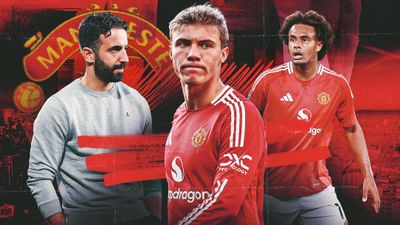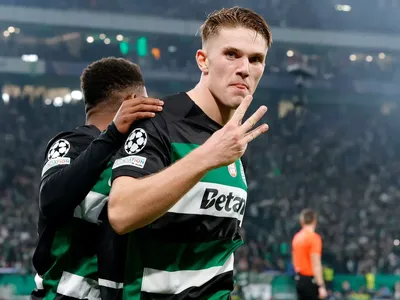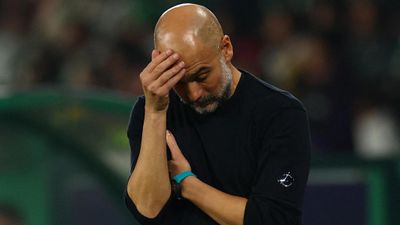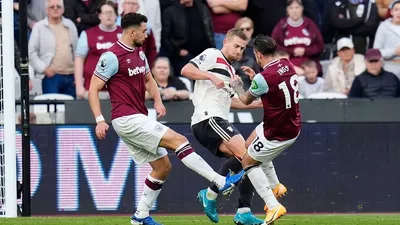Quick Betimate
Popular Leagues
-
UEFA Nations League
-
England (24)
- FA Cup (1)
- Premier League (11)
- Championship (1)
- League 1
- League 2 (2)
- National League (1)
- National League North (1)
- National League South (1)
- Premier League 2
- Championship Women
- Derbyshire Senior Cup
- Development League 2
- FA Cup Women (1)
- FA Trophy
- FA Vase
- Isthmian Division One North
- Isthmian Division One South
- Isthmian Premier Division
- National League Cup
- Northern League Division One
- Northern Premier League
- Reserve Matches
- Southern Premier League Central
- Southern Premier League South
- Super League Women
- U21 Premier League Cup
- Northern Ireland Championship
- Northern Ireland Championship Women (1)
- Northern Ireland Cup
- Northern Ireland Intermediate Cup
- Northern Ireland League Cup Women
- Northern Ireland Play-Offs
- Northern Ireland Premier
- Northern Ireland Premier Intermediate League
- Northern Ireland Premier League Women (4)
- Northern Ireland Reserve League
- Scotland Regional Cup
- Wales League Cup Women
-
UEFA Champions League (1)
-
UEFA Europa League (1)
-
Spain (115)
- La Liga (2)
- Segunda (11)
- Tercera Group 1 (4)
- Tercera Group 2 (4)
- Tercera Group 3 (4)
- Tercera Group 4 (4)
- Tercera Group 5 (4)
- Tercera Group 6 (4)
- Tercera Group 7 (4)
- Tercera Group 8 (4)
- Tercera Group 9 (4)
- Tercera Group 10 (4)
- Tercera Group 11 (4)
- Tercera Group 12 (4)
- Tercera Group 13 (4)
- Tercera Group 14 (4)
- Tercera Group 15 (4)
- Tercera Group 16 (4)
- Tercera Group 17 (4)
- Tercera Group 18 (4)
- Youth League
- Copa De La Reina (1)
- Copa del Rey
- Kings League - 40 mins play (1)
- Primera Division RFEF Group 1 (10)
- Primera Division RFEF Group 2 (10)
- Primera Federacion Women
- Primera Women (8)
- Queens League - 40 mins play
- Regional Cup
- Regional League
- Segunda Division RFEF Group 1
- Segunda Division RFEF Group 2
- Segunda Division RFEF Group 3
- Segunda Division RFEF Group 4
- Segunda Division RFEF Group 5
- Segunda Division RFEF Play-Offs
- Segunda Federacion Women
- Tercera Federacion Women
- Women Regional League
-
USA (756)
-
Germany (225)
- Bundesliga I (9)
- Bundesliga II (9)
- DFB Pokal (1)
- Regionalliga Bayern (9)
- Regionalliga North (9)
- Regionalliga North East (9)
- Regionalliga South West (9)
- Regionalliga West (8)
- Oberliga Baden-Wuerttemberg (9)
- Oberliga Bayern North (9)
- Oberliga Bayern South (8)
- Oberliga Bremen (8)
- Oberliga Hamburg (9)
- Oberliga Hessen (10)
- Oberliga Mittelrhein (8)
- Oberliga Niederrhein (9)
- Oberliga Niedersachsen (9)
- Oberliga NOFV Nord (8)
- Oberliga NOFV Sud (8)
- Oberliga Rheinland-Pfalz/Saar (9)
- Oberliga Schleswig-Holstein (8)
- Oberliga Westfalen (8)
- 3. Liga (10)
- Bundesliga II Play-Offs
- Bundesliga II Women (7)
- Bundesliga Play-Offs
- Bundesliga U19 (24)
- Bundesliga Women
- DFB Pokal Women
- Regionalliga Play-Offs
- U19 Cup (1)
-
Italy (41)
- Serie A (10)
- Serie B (1)
- Serie C Group A
- Serie C Group B
- Serie C Group C
- Campionato Nazionale
- Campionato Primavera 1 (10)
- Campionato Primavera 2 (4)
- Serie D (6)
- Coppa Italia
- Coppa Italia Women (1)
- Campionato Primavera 3
- Campionato Primavera 4
- Serie A Women
- Serie B Play-Offs (2)
- Serie B Women
- Serie C Play-Offs (5)
- Serie C Super Cup (1)
- Serie D Play-Offs (1)
- U19 League Women
-
France (24)
-
Netherlands (27)
-
Scotland (17)
-
Australia A-League (4)
-
Japan J-League (10)
-
Japan J2-League (10)
-
Indonesia Liga 1 (9)
-
Denmark Superligaen (6)
-
Cyprus Division 1 (3)
-
Israel Premier League (3)
-
Colombia Primera A (1)
-
Esport (160)
Other Leagues
-
Albania
-
Algeria (32)
-
Andorra (8)
-
Angola (8)
-
Argentina (82)
- Nacional B (19)
- Primera B Metropolitana (11)
- Primera C Metropolitana (15)
- Reserve League (3)
- Cup (3)
- Torneo A (18)
- Copa Santa Fe
- Championship Women (8)
- Copa de la Liga Profesional
- Copa Santa Fe Women
- Liga Profesional (4)
- Liga Profesional Reserves (1)
- Nacional Reserve League
- Regional League
- Youth League
-
Armenia (11)
-
Aruba
-
Australia (184)
- A-League (4)
- A-League Women (1)
- Capital Territory NPL2 (4)
- Capital Territory NPL2 U23 League
- Capital Territory Premier League (4)
- Capital Territory Premier League Women
- Capital Territory Premier League Women Reserves
- Capital Territory U23 League
- Cup
- Cup Qualifying (2)
- Darwin Premier League (4)
- FFA Cup Qualifying
- New South Wales League 1 (8)
- New South Wales League 2 (7)
- New South Wales NPL Women (7)
- New South Wales NPL2 Women
- New South Wales Premier League (8)
- New South Wales U20 League (7)
- Northern NSW Division 1 (5)
- Northern NSW Premier League (6)
- Northern NSW Premier League Women (3)
- Northern NSW Reserves League (6)
- NPL Queensland (6)
- NPL Queensland U23 (5)
- NPL Queensland Women (5)
- NPL Victoria (7)
- NPL Victoria U23 (5)
- NPL Victoria Women (6)
- NSW League 1 U20 (1)
- NSW League 2 U20
- Queensland PL 2 U23
- Queensland PL U23
- Queensland Premier League (6)
- Queensland Premier League 2 (6)
- Queensland Premier League 2 Women
- Queensland Premier League 3 (2)
- Queensland Premier League 4
- Queensland Premier League Women
- SA Premier League Reserves
- SA Premier League Women (5)
- SA Premier League Women Reserves
- South Australia Premier League (7)
- South Australia State League 1 (6)
- South Australia State League Reserves
- Sunday League Premier Division
- Sunday League Premier Division Reserve
- Tasmania Championship (4)
- Tasmania Championship 1
- Tasmania Championship Women
- Tasmania NPL U21 League
- Tasmania Premier League (4)
- Tasmania South Division 1
- Tasmania Super League Women
- Victoria PL 1 U23 (1)
- Victoria Premier League 1 (7)
- Victoria Premier League 2 (7)
- Victoria Premier League Women
- Victoria State League 1 (2)
- Victoria State League 1 Reserves
- Victoria State League 2
- Victoria State League 2 Reserves
- WA Premier League Women (4)
- WA Premier League Women U21
- WA State League 1 Reserves
- Western Australia Premier League (6)
- Western Australia State League 1 (6)
- Western Australia State League 1 Women
- Western Australia State League 2
- Western Australia U23 League
- Australian Matches
-
Austria (55)
-
Azerbaijan (10)
-
Bahrain (6)
-
Bangladesh (5)
-
Barbados (2)
-
Belarus (18)
-
Belgium (10)
-
Benin
-
Bhutan
-
Bolivia (16)
-
Bosnia & Herzegovina (13)
-
Botswana (8)
-
Brazil (212)
- Serie A (10)
- Serie B (10)
- Serie C (10)
- Campeonato Amapaense (1)
- Campeonato Baiano 2 (5)
- Campeonato Brasileiro A2 Women (9)
- Campeonato Brasileiro Serie B U20
- Campeonato Carioca A2 (1)
- Campeonato Carioca B (6)
- Campeonato Goiano 2 (4)
- Campeonato Maranhense (1)
- Campeonato Mineiro 2 (1)
- Campeonato Mineiro U20 (6)
- Campeonato Paranaense 2 (5)
- Campeonato Paulista A4
- Campeonato Paulista U20 (24)
- Campeonato Rondoniense
- Catarinense 2 (3)
- Copa Espirito Santo (5)
- Copa Nordeste (4)
- Copa Rio Women
- Copa Verde
- Matches
- Matches Women
- Paraense
- Paulista Serie B (1)
- Paulista Women (1)
- Serie A U20 (2)
- Serie A1 Women (8)
- Serie A2 Women
- Serie A3 Women (16)
- Serie D (35)
- U20 Cup
- U20 League (27)
- U20 Women Cup
- Copa do Brasil (16)
- Women’s Friendly (1)
-
Bulgaria (16)
-
Burkina Faso
-
Burundi
-
Cambodia (5)
-
Cameroon (8)
-
Canada (7)
-
Chile (23)
-
China (44)
-
Colombia (17)
-
Costa Rica (1)
-
Côte d’Ivoire
-
Croatia (20)
-
Cuba
-
Cyprus (3)
-
Czech Republic (99)
-
Denmark (49)
-
Djibouti
-
Dominica
-
Dominican Republic
-
Ecuador (20)
-
Egypt (23)
-
El Salvador (7)
-
Estonia (19)
-
Ethiopia (9)
-
Faroe Islands (11)
-
Fiji (1)
-
Finland (126)
-
Gambia
-
Georgia (9)
-
Ghana (9)
-
Gibraltar
-
Greece (9)
-
Guatemala (2)
-
Haiti
-
Honduras (2)
-
Hong Kong SAR China (15)
-
Hungary (16)
-
Iceland (39)
-
India (3)
-
Indonesia (9)
-
Iran (11)
-
Iraq (15)
-
Ireland (26)
- Republic of Ireland FAI Cup (8)
- Republic of Ireland FAI Intermediate Cup
- Republic of Ireland First Division (5)
- Republic of Ireland Leinster Senior Cup
- Republic of Ireland Leinster Senior League (2)
- Republic of Ireland Munster Senior League
- Republic of Ireland National League Women (6)
- Republic of Ireland Premier Division (5)
- Republic of Ireland U20 League
-
Israel (14)
-
Jamaica (4)
-
Japan (64)
-
Jordan
-
Kazakhstan (11)
-
Kenya (9)
-
Kuwait (3)
-
Kyrgyzstan (1)
-
Latvia (9)
-
Lebanon (6)
-
Liechtenstein (1)
-
Lithuania (29)
-
Luxembourg (9)
-
Macau SAR China
-
Macedonia (15)
-
Malawi (6)
-
Malaysia
-
Mali
-
Malta (1)
-
Mauritania (1)
-
Mexico (6)
-
Moldova (4)
-
Mongolia
-
Montenegro (9)
-
Morocco (8)
-
Mozambique
-
Myanmar (Burma) (4)
-
Namibia
-
Nepal
-
New Zealand (16)
-
Nicaragua (2)
-
Niger
-
Nigeria (10)
-
Norway (79)
- Eliteserien (8)
- Division 1 (7)
- Cup (8)
- Cup Women (7)
- Division 1 Play-Offs
- Division 1 Women (6)
- Division 2 Group 1 (1)
- Division 2 Group 2 (7)
- Division 2 Group 3
- Division 3 Group 1 (7)
- Division 3 Group 2 (1)
- Division 3 Group 3 (7)
- Division 3 Group 4 (7)
- Division 3 Group 5 (7)
- Division 3 Group 6 (1)
- Interkretsserie U19
- Toppserien Women (5)
- U19 Elite League
- Youth Cup
-
Oman
-
Panama (3)
-
Paraguay (14)
-
Peru (21)
-
Philippines
-
Poland (66)
-
Portugal (29)
-
Puerto Rico
-
Qatar
-
Romania (59)
-
Russia (53)
-
Rwanda (8)
-
Saint Kitts and Nevis
-
San Marino (1)
-
Saudi Arabia (16)
-
Senegal
-
Serbia (17)
-
Seychelles
-
Sierra Leone (1)
-
Singapore (6)
-
Slovakia (31)
-
Slovenia (13)
-
Solomon Islands
-
South Africa (16)
-
South Korea (24)
-
Suriname
-
Sweden (94)
- Europe Friendlies
- Allsvenskan Qualification
- Superettan Qualification
- 1.div Norra (8)
- Cup (4)
- 1.div Södra (3)
- 2.div Norra Götaland (7)
- 2.div Norra Svealand (7)
- 2.div Norrland (1)
- 2.div Södra Götaland (7)
- 2.div Södra Svealand (7)
- 2.div Västra Götaland (6)
- Allsvenskan (8)
- Cup Qualification (1)
- Cup Women (1)
- Damallsvenskan (7)
- Div 1 Relegation (5)
- Elitettan (7)
- Juniorallsvenskan (7)
- Superettan (8)
-
Switzerland (19)
-
Taiwan
-
Tajikistan (1)
-
Tanzania (10)
-
Thailand (3)
-
Togo
-
Trinidad and Tobago (6)
-
Tunisia (18)
-
Turkey (23)
- Türkiye 1 Lig
- Türkiye 2 Lig Beyaz (1)
- Türkiye 2 Lig Kirmizi (1)
- Türkiye 2.Lig Play-offs
- Türkiye 3. Lig Promotion Group Play-off (2)
- Türkiye 3.Lig Group 1 (1)
- Türkiye 3.Lig Group 2
- Türkiye 3.Lig Group 3
- Türkiye 3.Lig Group 4 (1)
- Türkiye Cup
- Türkiye Super Lig (8)
- Türkiye U19 League (9)
- Türkiye Womens League
-
Uganda (4)
-
Ukraine (24)
-
United Arab Emirates (20)
-
Uruguay (17)
-
Uzbekistan (12)
-
Venezuela (5)
-
Vietnam (15)
-
Wales (1)
-
Zambia (9)
-
Zimbabwe (9)
Could Manchester United Face a Champions League Ban? UEFA Rules Explained

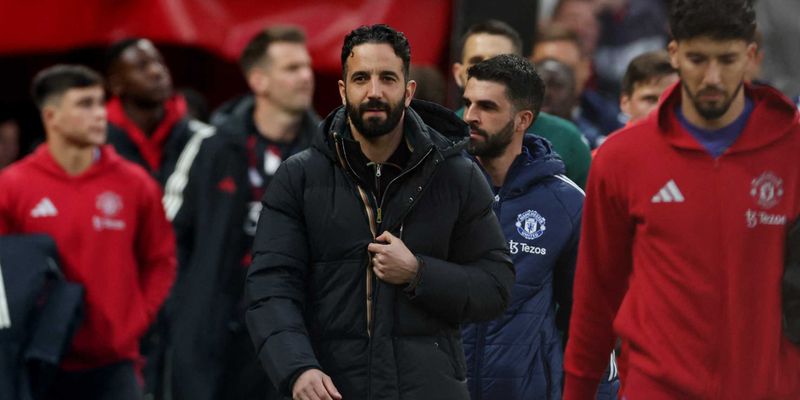
The possibility of Manchester United being barred from next season’s Champions League has become a hot topic of debate, particularly considering the club’s turbulent domestic performance and the complex regulations now influencing European competition entries. As a sports analyst at Betimate, I’ll take you through the critical factors at play and explain why such a ban, while unlikely, cannot be entirely ruled out.
Current State of Manchester United’s Champions League Hopes
Manchester United’s only realistic route to next year’s Champions League is by securing victory in the upcoming Europa League final. Despite a disappointing Premier League season—finishing with one of their lowest points tallies since 1992—the potential to lift the Europa League trophy could secure them a much-needed spot at Europe’s elite table. Their domestic form, however, leaves little margin for error, making this opportunity crucial for the team’s ambitions and financial health.
Complications From Multi-Club Ownership
What adds a layer of uncertainty to United’s Champions League prospects is the issue of multi-club ownership. Sir Jim Ratcliffe and his company INEOS not only hold significant influence at Manchester United but also own French club OGC Nice. With both clubs potentially qualifying for the Champions League, UEFA regulations regarding clubs with shared ownership taking part in the same competition come sharply into focus.
Understanding UEFA’s Multi-Club Ownership Polic
UEFA’s rules on multi-club ownership have been strengthened in recent years. The core principle is to prevent any conflict of interest or possible undermining of the competition’s integrity. If two clubs controlled by the same owner qualify for the same European competition, only one can be admitted.
UEFA’s guidelines consider various elements when addressing such situations:
- Degree of ownership and influence (voting rights, board appointments, etc.)
- Whether the clubs have overlapping decision-makers or financial dependency
- Potential for collusion or influence on competitive outcomes
Previously, these rules had been applied more rigidly. However, UEFA has recently shifted to a case-by-case assessment, aware that collaborative club models are now a significant part of the football landscape. This more nuanced approach has already seen exceptions, with both Manchester City and their sister club Girona allowed entry into the Champions League under certain stipulations.
What This Means for Manchester United and OGC Nice
This revised policy is relevant for United and Nice, both because of their shared ownership and their potential to meet in the same European tournament. If both clubs qualify, it would likely trigger an investigation by UEFA’s Club Financial Control Body to evaluate ownership structuring and ensure compliance with fair competition rules.
While there are various ways clubs have navigated these situations—including adjusting ownership shares or reducing managerial influence—there are no guarantees. Should UEFA determine that Ratcliffe’s control is significant over both clubs, it may rule that only the highest-placed domestic finisher is eligible. This could result in Nice, who finished higher in their league, taking the Champions League place even if Manchester United win the Europa League.
- Bodo/Glimt vs Tottenham Prediction, Odds & Betting Tips 05/08/2025
- Man Utd vs Athletic Bilbao Prediction, Odds & Betting Tips 05/08/2025
Sir Jim Ratcliffe’s Response and UEFA’s Flexibility
Sir Jim Ratcliffe has publicly commented on the issue, emphasizing that he does not foresee a scenario in which United would be punished due to his involvement with Nice. He clarified that UEFA’s evolving rules allow for flexibility in managing such situations and that any necessary changes to the ownership structure could be made to ensure both clubs’ European participation.
Ratcliffe acknowledged that “it’s all about influence and positions on the board,” underscoring that UEFA’s considerations depend on the technical details of ownership, decision-making, and operational independence. The ultimate aim for both UEFA and club owners is to demonstrate a clear separation of interests and avoid situations where the results or management of one club could affect another unfairly.
Statements Indicating a Shift in UEFA’s Approach
Drawing on recent conversations with UEFA, Ratcliffe reported that the organization is now more pragmatic about multi-club models. While they remain concerned about the integrity of competitions, UEFA recognizes that smaller clubs can benefit significantly from investment links with more prominent clubs. The biggest risk, according to Ratcliffe, is any suspicion that match outcomes could be manipulated, which UEFA is keen to avoid at all costs.
To further ease concerns, it has been revealed that Ratcliffe has considered reducing his influence at Nice, or even selling some of his stake, should that become necessary to comply with UEFA rules. Such proactive steps demonstrate United’s commitment to maintaining eligibility and preserving the club’s European ambitions.
The Broader Impact on European Competition
The principle of sporting merit remains at the heart of European qualification. However, as the structure and ownership of global clubs become increasingly intricate, UEFA is facing new challenges in balancing fair play with the realities of football’s business landscape.
For example, similar scrutiny has already involved other high-profile clubs with interconnected ownership, such as Manchester City and Girona. By applying flexible, context-driven solutions, UEFA hopes to avoid blanket bans while still safeguarding the credibility of its competitions.
As a long-time football analyst for Betimate, I’ve seen how these regulations adapt to an evolving sport, aiming to maintain equal opportunities for all qualifying clubs. The impact of these rules stretches beyond just United and Nice, affecting club strategies, fan trust, and even the global transfer market.
How Will This Play Out?
While it’s unlikely Manchester United will face a ban unless UEFA finds clear evidence of regulatory breaches, the situation remains complex and highly fluid. Club leaders, legal experts, and UEFA authorities will continue evaluating the technicalities right up to the start of the new campaign.
Manchester United’s management appears determined to resolve any conflicts, whether by altering board composition, reducing shareholding, or other structuring changes. The club’s robust legal and administrative team, combined with UEFA’s willingness to negotiate, suggest that a compromise is possible if both clubs’ European spots are at stake.
Conclusion
The debate over whether Manchester United could be excluded from the Champions League highlights the intricate challenges presented by multi-club ownership in modern football. UEFA’s increasingly nuanced approach provides hope for a mutually beneficial resolution, but compliance with evolving regulations will be essential.
For clubs and fans alike, the key is transparency, fair play, and a willingness to adapt. As the upcoming season approaches, all eyes will be on United’s Europa League final—and what steps, if any, the club and its ownership will take to secure a future among Europe’s elite. The outcome will serve as an important precedent for how football’s governing bodies manage the intersection of ambition, investment, and fair competition.
For further insights and expert analysis on football regulations and club performance, explore the resources provided by Betimate.

Related Content

